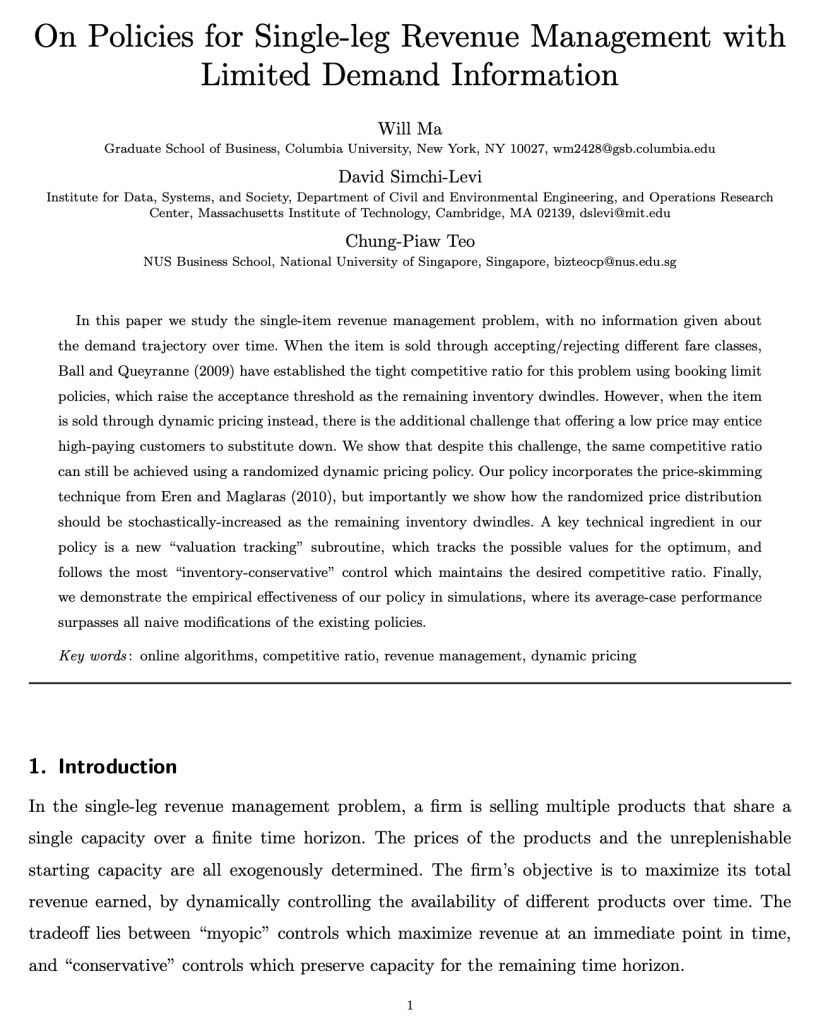In this paper we study the single-item revenue management problem, with no information given about the demand trajectory over time. When the item is sold through accepting/rejecting different fare classes, Ball and Queyranne (2009) have established the tight competitive ratio for this problem using booking limit policies, which raise the acceptance threshold as the remaining inventory dwindles. However, when the item is sold through dynamic pricing instead, there is the additional challenge that offering a low price may entice high-paying customers to substitute down. We show that despite this challenge, the same competitive ratio can still be achieved using a randomized dynamic pricing policy. Our policy incorporates the price-skimming technique from Eren and Maglaras (2010), but importantly we show how the randomized price distribution should be stochastically-increased as the remaining inventory dwindles. A key technical ingredient in our policy is a new “valuation tracking” subroutine, which tracks the possible values for the optimum, and follows the most “inventory-conservative” control which maintains the desired competitive ratio. Finally, we demonstrate the empirical effectiveness of our policy in simulations, where its average-case performance surpasses all naive modifications of the existing policies.


